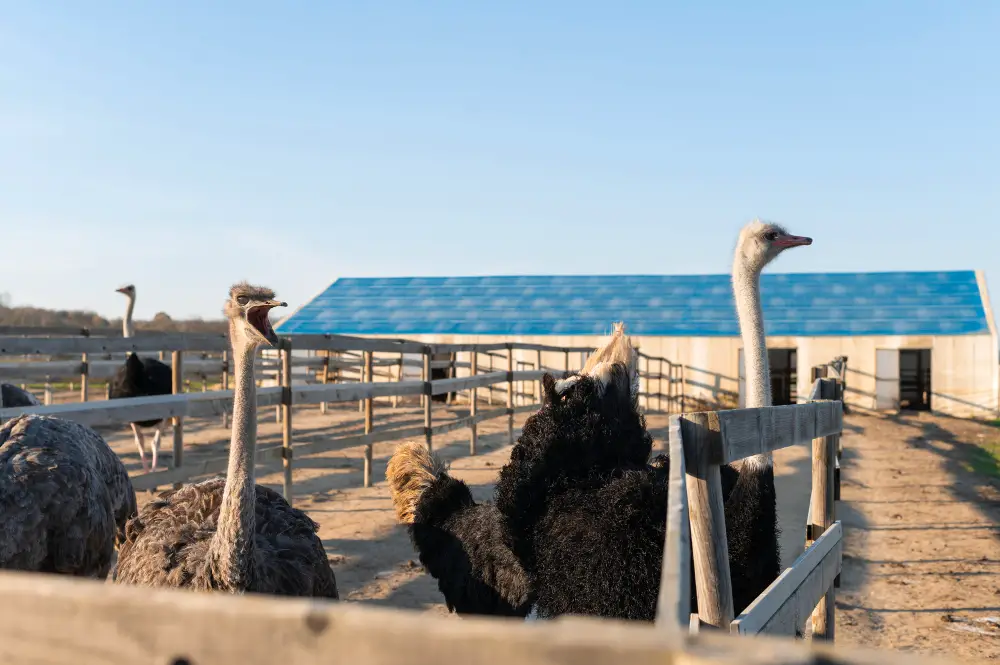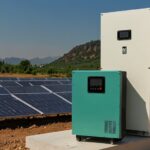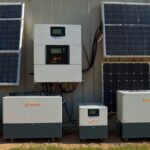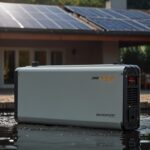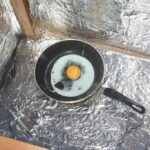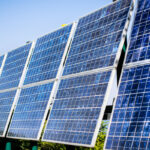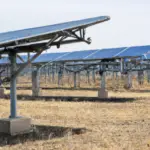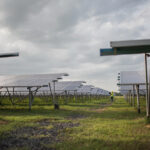As a farmer, you understand the importance of providing clean and warm water for your livestock. Traditional water heating methods can be costly and harmful to the environment. However, there is a more sustainable solution – solar water heaters. In this blog post, we will explore the benefits of using solar water heaters for livestock, the different types of systems available, and DIY options for installation.
Types of Solar Water Heaters for Livestock
Passive Solar Water Heaters for Livestock
These types of solar water heaters rely on the natural circulation of water due to temperature differences. They consist of a well-insulated tank or reservoir painted in dark colors to absorb and retain solar energy. As the water heats up, it naturally rises and is replaced by cooler water, creating a cyclical flow that keeps the water warm. Passive solar water heaters are simple and cost-effective solutions, ideal for small-scale livestock operations.
Active Solar Water Heaters for Livestock
Active solar water heaters involve using pumps to circulate water through the system, enhancing its efficiency and control. They consist of solar collectors, which are typically mounted on rooftops or other elevated surfaces, and a storage tank. These collectors absorb sunlight and transfer the heat to the water, which is then pumped into the storage tank. Active systems are particularly suitable for larger livestock farms where consistent and controlled water temperature is crucial.
Batch Solar Water Heaters for Livestock
A batch solar water heater, also known as an integrated collector-storage system, is essentially a black tank with a glazed window or cover. The tank absorbs solar energy and heats the water stored inside. This system is often used for smaller livestock watering needs or in situations where a consistent flow of water is not required.
DIY Solar Water Heaters for Livestock
For those with a penchant for DIY projects and a desire to reduce their carbon footprint, creating a solar water heater for livestock can be an exciting and rewarding endeavor. Here’s a simple guide to get you started:
Materials You’ll Need
- Insulated container or tank
- Black paint or other dark-colored material
- Hose or tubing
- Water pump (for active systems)
- Glazed window or cover (for batch systems)
- Connectors and fittings
- Insulation materials (if needed)
Steps for DIY Solar Water Heaters for Livestock
Select the Design
Begin by choosing the most suitable design for your solar water heater. Depending on your needs and resources, opt for a passive, active, or batch system design.
Prepare the Tank
Once you have your insulated container or tank, prepare it for optimal heat absorption. Coat the container’s exterior with black paint or another dark-colored material to maximize its ability to absorb sunlight.
Build the Solar Collector
If you’re opting for an active system, construct a solar collector. This collector, usually made of tubing painted black or other heat-absorbing materials, is a crucial component for transferring solar energy to the water.
Connect the Components
With your tank and collector ready, it’s time to connect the various components. Attach the tubing or collector to the tank, ensuring a secure and leak-proof connection. For active systems, integrate a water pump to facilitate the circulation of water through the system.
Install Glazed Cover (if applicable)
In the case of a batch system, install a glazed window or cover over the tank. This addition traps heat and creates a greenhouse effect, aiding in the heating process.
Position the System
Choose a location that receives ample sunlight exposure throughout the day. Proper positioning of the solar collector is essential to maximize solar absorption. Mount the collector at an angle that optimizes its exposure to the sun’s rays.
Test and Monitor
Fill the system with water and set it under direct sunlight. Monitor the temperature of the water within the tank as well as the flow through the system. Make adjustments as needed to ensure optimal performance.
Benefits/ Pros of Solar Water Heaters for Livestock
Solar water heaters can offer several benefits when used for livestock operations. Here are some advantages of using solar water heaters for livestock:
Cost Savings
Solar water heaters utilize the energy from the sun to heat water, reducing the need for traditional energy sources like electricity or fossil fuels. This can lead to significant cost savings on energy bills, especially in larger livestock operations where water heating is a constant requirement.
Reduced Environmental Impact
Solar water heaters produce clean and renewable energy, reducing greenhouse gas emissions and dependence on non-renewable resources. This aligns well with sustainability goals and can enhance the eco-friendly image of the livestock operation.
Reliability in Remote Locations
Livestock operations are often situated in rural or remote areas where access to traditional energy sources might be limited or expensive. Solar water heaters can provide a reliable source of hot water without relying on grid infrastructure.
Low Maintenance
Solar water heaters are relatively low-maintenance compared to conventional heating systems. They have fewer moving parts and require less servicing, saving time and maintenance costs for livestock operators.
Long Lifespan
They generally have a long lifespan, often lasting over 20 years with proper maintenance. This can lead to long-term cost savings by avoiding the frequent replacements often required by other heating systems.
Stable Water Temperature
Solar water heaters can provide consistent water temperatures, which can be crucial for the well-being of livestock. Sudden fluctuations in water temperature can stress animals and impact their health and productivity.
Improved Animal Health
Access to warm water, especially during colder months, can enhance the overall health of livestock. Warm water consumption can aid digestion, improve hydration, and reduce the risk of cold-related health issues.
Compliance with Regulations
In some regions, there might be regulations or incentives promoting the use of renewable energy sources. Utilizing solar water heaters can help livestock operations meet these requirements and potentially qualify for incentives or rebates.
Energy Independence
By using solar energy, livestock operators can become more self-sufficient in terms of energy. This can be particularly valuable during energy supply disruptions or price fluctuations in traditional energy sources.
Enhanced Reputation
Adopting sustainable practices like solar water heating can improve the public image of the livestock operation. Consumers and stakeholders increasingly appreciate environmentally conscious and ethical practices.
Diversification of Energy Sources
Relying on a single energy source can be risky in terms of price volatility and supply disruptions. Incorporating solar water heaters adds diversity to the energy mix, improving resilience.
Minimal Water Contamination Risk
Solar water heaters don’t involve combustion processes, reducing the risk of water contamination from pollutants or combustion byproducts.
Wrapping It Up
In conclusion, solar water heaters are a great option for farmers looking to provide warm water for their livestock. Not only are they cost-effective and environmentally friendly, but they also promote better animal health and hygiene. While DIY solar water heaters for livestock can be a viable option for small-scale operations, it’s important to consider factors such as water needs, location, and durability when designing and installing the system. Overall, solar water heaters offer a reliable and sustainable solution for farmers looking to improve their livestock’s welfare while minimizing their environmental impact.

